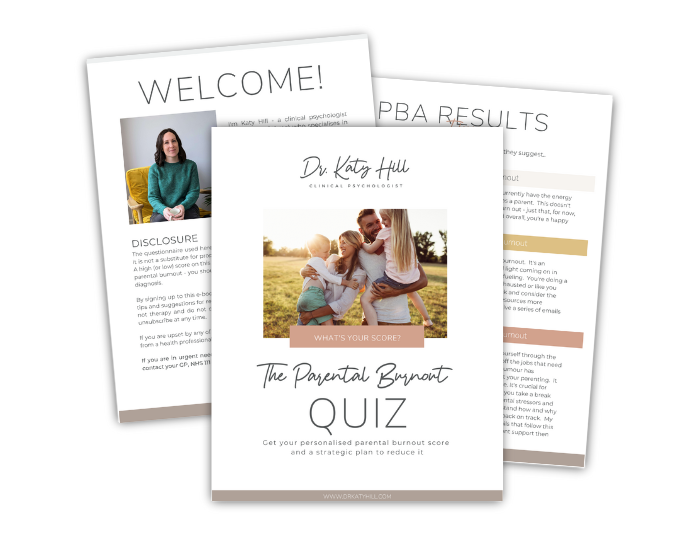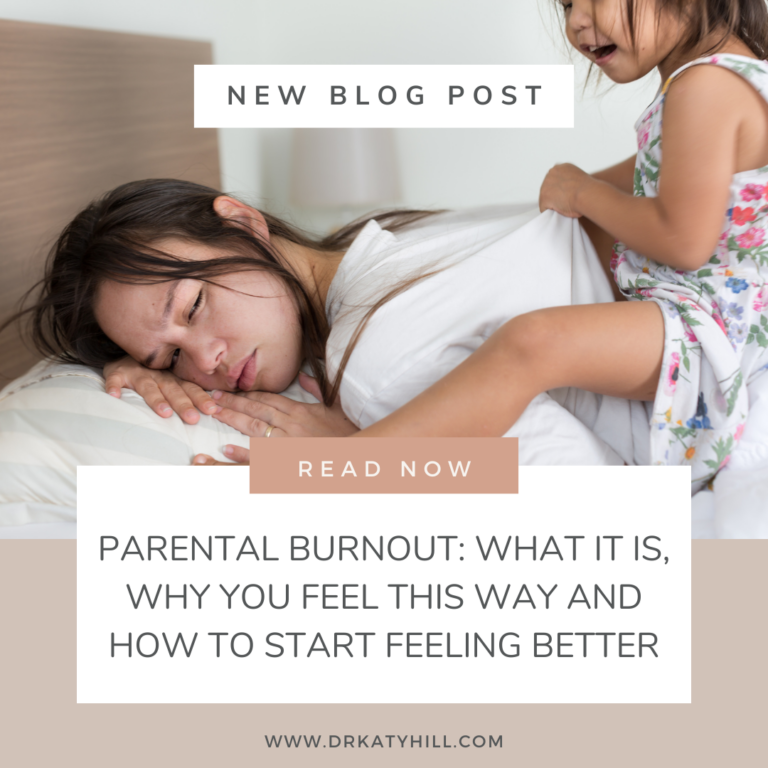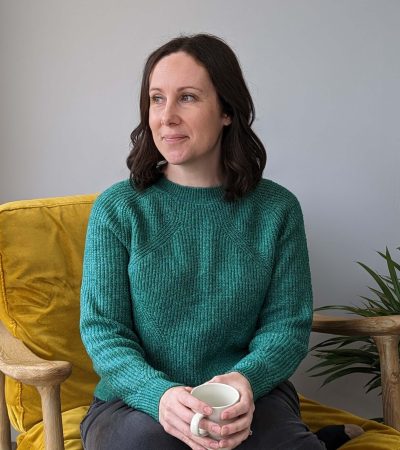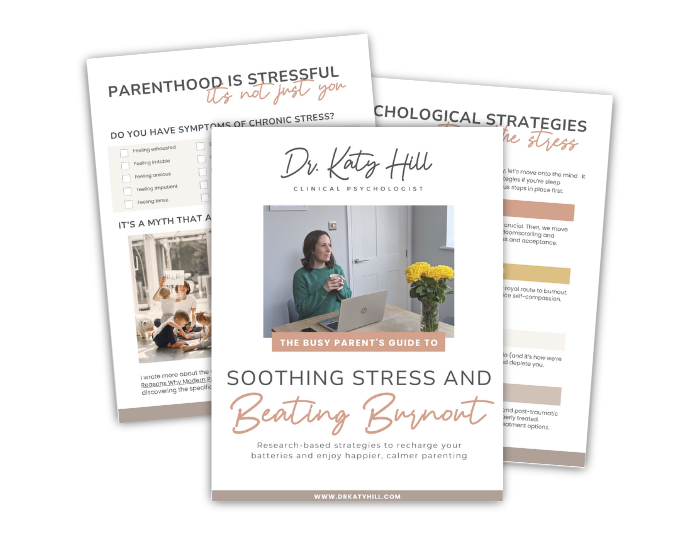Are you a parent who’s feeling exhausted, irritable, resentful, fed up and disillusioned? I promise you’re not the only one. And despite what you might think, it’s not your fault and you’re not a bad parent.
Maybe you used to be a really enthusiastic parent, thoroughly invested in giving your children the best start in life but now find yourself drained, grumpy, guilty and worried that you’re doing it all wrong? You might be experiencing something called parental burnout.
It’s a term most parents have never heard of, yet studies show that around 5% of parents worldwide are affected by it – with rates as high as double that in some Western countries – meaning 1-2 parents in every class feel this way.
And most of them don’t dare tell a soul due to the cultural myth that becoming a parent is life’s greatest joy – how can we be exhausted and grumpy when we have a ‘bundle of joy’?
Let’s talk about what parental burnout really is, how to recognise it, and how you can start recharging your batteries and enjoying parenthood again.
what is parental burnout?
You’ve probably heard about burnout in a work context – the exhaustion and disconnection that effects people in high stress professions like healthcare or teaching.
Well, burnout can happen in parenthood too. And honestly, it makes even more sense.
Parenting is both a deeply emotional relationship and relentless, unpaid work. It’s a job without training, without sick days or annual leave, and often without much support. And no matter how overwhelmed you feel, you can’t just hand in your resignation.
Parental burnout happens when the chronic stress of parenting outweighs the resources you have to manage it. It’s more than just feeling tired – it’s a deep, ongoing emotional and physical exhaustion that leaves you feeling disconnected from your children and stripped of any joy in parenting.
the 4 key signs of parental burnout
It doesn’t happen overnight, burnout gradually builds over time beginning with feeling exhausted. The leading researchers in the field Profs Isabelle Roskam and Moïra Mikolajczak have identified the four core features that develop sequentially:
Emotional and Physical Exhaustion
This goes beyond normal tiredness. It’s feeling drained to your core – mentally, emotionally, and physically. You wake up already exhausted, even if you’ve slept a long time, and feel dread about what’s to come that day.
Emotional Distancing from Your Children
Exhausted parents often feel detached or disconnected from their children. You may still go through the motions – feeding, dressing, school runs – but you’re emotionally checked out. You might feel irritated by your kids’ needs or find yourself withdrawing from them.
Loss of Joy and Fulfilment in Parenting
Exhausted, disconnected parents come to feel like parenthood is just a grind. Parenting your children stops being about cultivating a relationship and starts to feel like an endless to-do list. The joy, pride, and connection you once felt have been replaced by stress, guilt, and resentment.
Feeling Like a Shadow of the Parent You Once Were
You might look back and wonder, What happened to the parent I used to be? Maybe you were once patient, creative, and present, and now you barely recognize yourself. This shift can bring deep guilt and shame.

The Parental Burnout Quiz
Curious what your own parental burnout score is? Download the free assessment and get your score – plus expert tips on how to reduce it.
why does parental burnout happen?
Parents experiencing burnout often blame themselves, convinced that everyone else seems to be managing. They think, “Why can’t I handle this like other parents do?”
But here’s the truth: this isn’t a personal failure. It’s about imbalance.
All parents face stress, but burnout happens when those stressors pile up without enough support or resources to balance them out. It’s simply too much, for too long.
It’s not the stressors alone – it’s the lack of resources and support.
Imagine a parent with three children under five, one with a chronic health condition, living in a small flat with no outdoor space. That’s a tough situation – but whether it leads to burnout depends on the resources available.
We could imagine that this parent might not fall into burnout because they had balance in the form of, for example: a supportive hands-on co-parent, access to affordable, high-quality childcare and were able to invest in their other identities at work, in leisure activities and with friends.
One fascinating finding in burnout research is that rates are much lower in collectivist cultures, where families and communities share parenting responsibilities. In contrast, more individualistic Western societies put enormous pressure on parents to “do it all” – and do it perfectly.
Add in social media’s endless highlight reels and conflicting parenting advice, and it’s no wonder so many parents feel they’re drowning.
why recognising parental burnout matters
It’s so important to recognise and treat parental burnout because it doesn’t tend to go away by itself and can lead to some serious consequences for the whole family.
Burned out parents can suffer with irritability, anxiety, depression, sleep issues, physical health problems, suicidal thoughts and alcohol and substance addiction.
It affects the whole family – partnerships become strained and conflictual or distant and there’s an increased chance of adultery.
Children start to show signs of stress in their mood, appetite, sleep and/or wellbeing and attainment at school. They’re also a greater risk of emotional or physical neglect or abuse when a parent is in severe parental burnout.
This isn’t about scaring or judging you – but warning you that this is serious and you do need support. And the good news is, parental burnout is a temporary condition and with the right information and support you can start to feel much better.
how to start feeling better
As we’ve said, parental burnout is an imbalance between stressors and resources and so the solution is, quite simply, to reverse that imbalance – to reduce stressors and increase resources. You can find out your unique balance using this measure here.
There’s no off-the-shelf treatment because every parent’s stressors and resources are different, as a certified parental burnout practitioner, I’m trained to help you consider your unique balance and decide which stressors or resources to target.
Everyone is different – one parent might need to work on stress management or emotional regulation skills whereas another might need to learn parenting skills and another might benefit most from working on their co-parenting relationship and redistributing the division of parenting labour.
Some general strategies that all parents could likely benefit from are to prioritise rest and self-care, reduce any perfectionistic parenting standards they have and find ways to spend quality time with your children and rebuild that relationship.
It’s really important to ask for help – think back to how we talked about the low rates of parental burnout in collectivist countries. It really does take a village to raise a child. Whether you reach out to a your partner, a friend or family member or seek professional support; asking for help is a sign of strength and key to recovering from parental burnout.
you deserve support
Parental burnout doesn’t mean you’re a bad parent. It means you’ve been giving and giving without enough support coming back to you. Recognising that and asking for help isn’t failing – it’s taking the first, brave step towards healing.
You deserve to feel more calm, connected, and fulfilled in your parenting role. And when you take care of yourself, your whole family benefits.
If you’re ready to take that first step and explore how 1:1 support could help you feel more like yourself again, I’d love to hear from you.
Book your free 15 min intro call here.
You are not alone. You are worthy of support. Let’s take this first step together.








